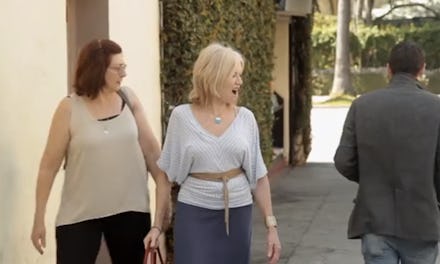If Women Said the Things Men Say, This Is How Ridiculous It Would Sound

The latest in BuzzFeed's comedic video series that challenges diverse stereotypes and societal norms in American culture tackles what is undeniably the most pervasive cultural norm: patriarchy. More specifically, BuzzFeed depicts how patriarchy shapes culture — from entertainment to social interactions on the street — by strategically substituting women for men, and vice versa.
"If Men Were Women" shows a range of problems of frustrations men might face if they were women. These include not being able to leave a party without a woman insisting that he be escorted home, scrolling through Netflix only to find that every top television option stars a female actress and having insecure feelings when confronted by all the beautifully toned men on the cover of glossy magazines at the newsstand:
Image Credit: YouTube
The challenge these videos present to the cultural norm demands that all women dislike these norms. Of course, this is not always the case — and it would be wrong to generalize that all women are enraged by the sight of women like those presented in these (still very profitable) magazines. The 60-second viral video offers a very simplistic assessment in this regard as many women do love these types of magazines.
As a woman, I can find Katie Holmes' new Glamour cover, for example, to be desirable in myriad ways. And that's OK.
Image Credit: Glamour
Ultimately, the BuzzFeed video series is, well, a cute attempt to offer moments of humor by exposing society's double standards. The video "If Black People Said the Stuff White People Say" similarly attempts to flip the script on everyday racism. As Mic's Derrick Clifton wrote, the clip proves "just how irritating and upsetting stereotypes become when you are part of the privileged majority not used to being subjected to them daily. The video is funny, but it makes an important point in highlighting the at-times uncomfortable invasiveness endured by many African-Americans." Other videos in the series tackle stereotypes surrounding Asian-Americans and Latinos.
This latest video touches more on objectification than anything else, and is similar to this prior video that swaps images of women and men in advertising:
These types of video campaigns have the good intention of addressing socio-political problems through humor. But at the same time, it's important that these moments of oversimplified humor are in fact humorous, and don't perpetuate the outdated stereotypes they are supposed to skewer in the first place.